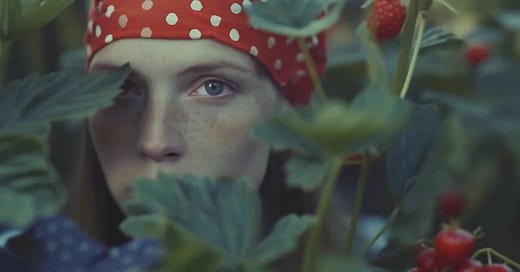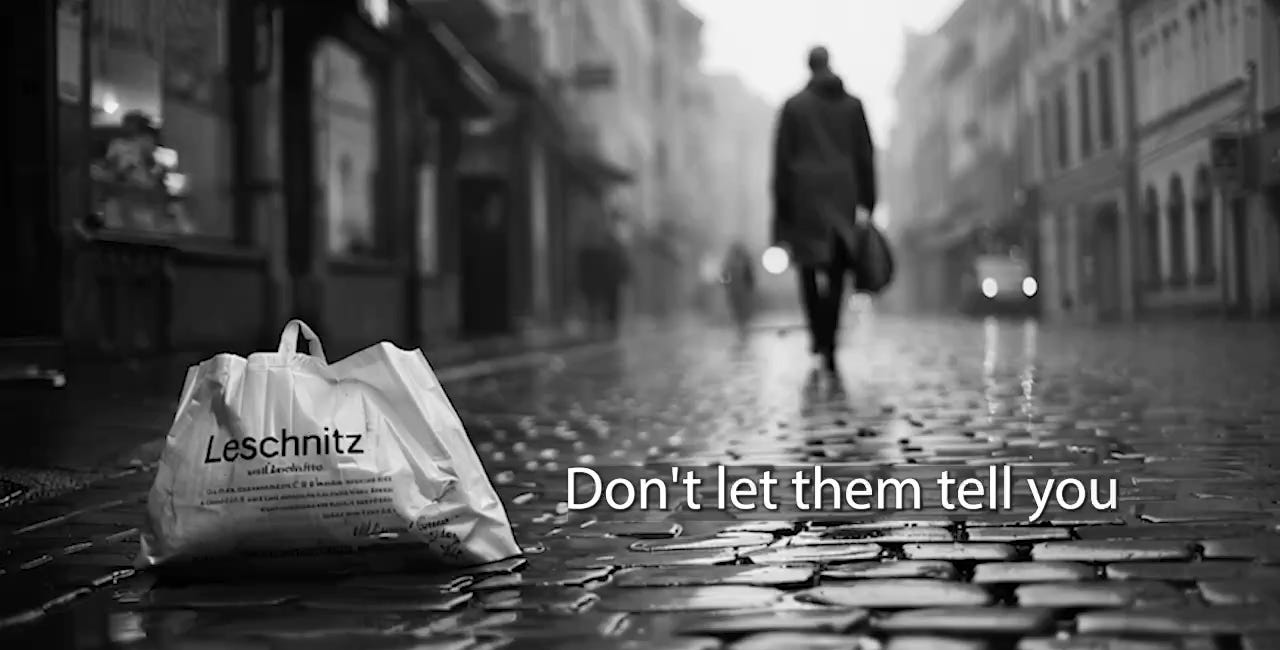Remember that?
Red smear of juice.
She shouldn't be here.
Not anymore. Not like this.
He remembers, though.
The weight of her absence, heavy,
like a stone in his gut, a hand on his chest.
Wild strawberries,
they taste like regret, like lost time.
Like the ghost of her laughter on his skin.
You are young again, for a moment.
A stolen glimpse, a fleeting memory.
You are there, in the sun-dappled field,
the taste of summer bright on your tongue.
The past is gone, lost to the years,
but its echo remains.
It lingers in the scent of ripe fruit,
in the whisper of the wind through the trees.
It reminds you: you lived.
You loved. You are still here.
Bergman's Wild Strawberries
I wrote this after watching Bergman's Wild Strawberries for the tenth time, maybe the twentieth. Time loses meaning in the face of art like that. Knowing that Bergman drew from his own life, his own failings and heartbreaks, to create the film's dreamscape of memory and regret adds another layer of sorrow, a haunting beauty.
It makes you wonder about the ghosts that linger in the gardens of our past, the whispers of might-have-beens that color our present. Even the attempted American remake with Gregory Peck, a project that never materialized, feels like another layer of longing, a faded photograph tucked away in a drawer.
Dreaming, after all, is a form of planning.
Not the blueprints and deadlines kind, no, nothing so rigid, so unyielding. It's more like gathering light, cupping fireflies in your palms. Each spark a possibility, a whispered "what if."











Share this post